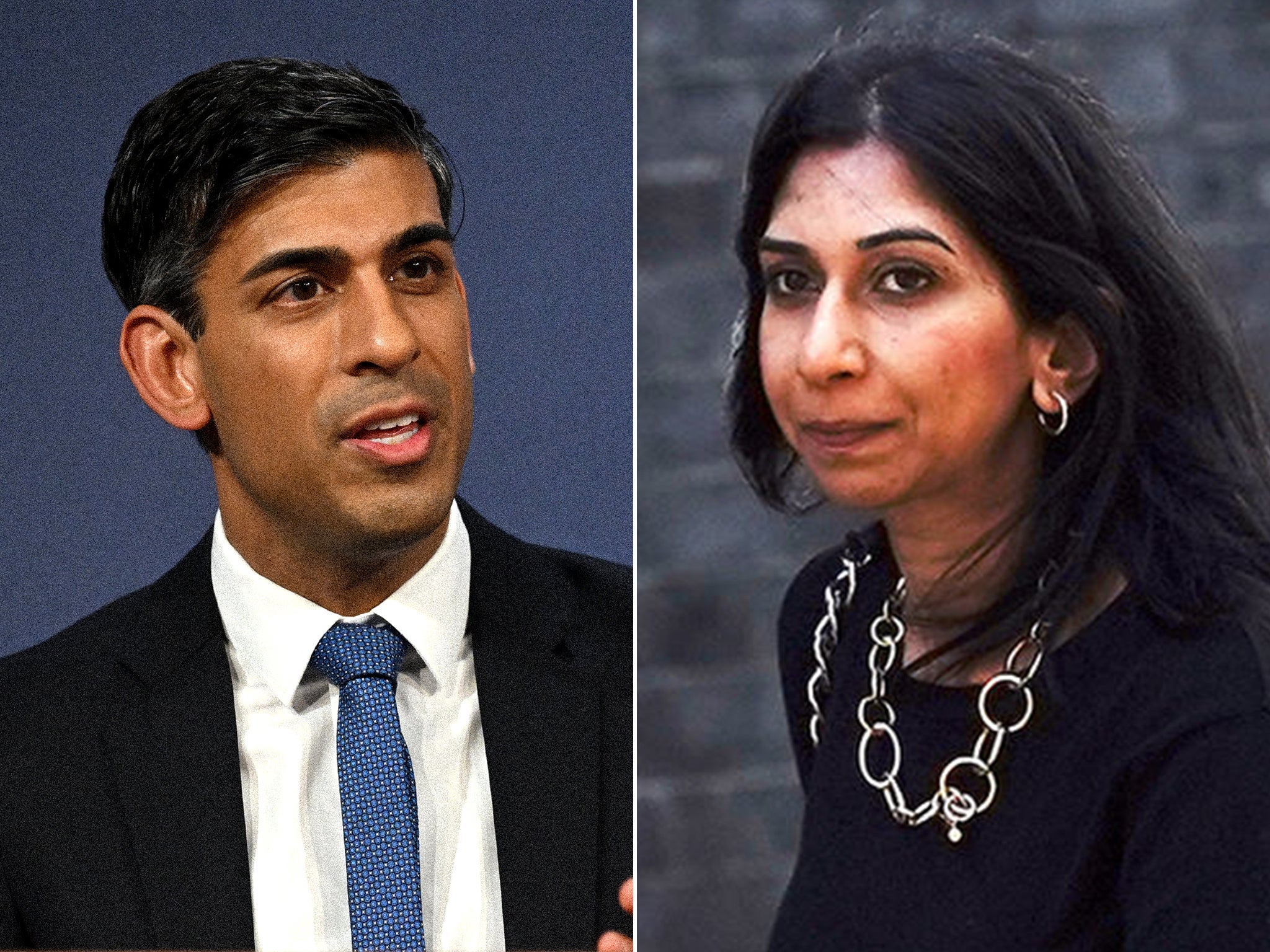The next election will be fought and lost on small boats – but not in the way you imagine
It is going to be very difficult for Rishi Sunak to make boats equal votes, writes Andrew Grice


Net migration to the UK will rise to a record level when official figures are published next Thursday, up from 504,000 to more than 700,000 a year. There have been reports the figure could rocket to 1 million, but the suspicion at Westminster is that this might have more to do with expectation management than reality.
In the margins of the G7 summit in Japan on Friday, Rishi Sunak sought to avoid talking about legal migration, repeatedly trying to divert his media interviews to the illegal variety of people crossing the Channel in small boats.
No wonder: when the 2019 Tory manifesto pledged to reduce immigration, the annual net figure stood at 226,000. Sunak said legal migration is “too high” but declined to set a target or timescale for bringing it down, knowing the Tories have failed woefully to achieve their previous goals.
Although the nerves of right-wing Tories are on edge ahead of the new figures, immigration became less of a priority for voters after Brexit, with policy under the UK’s control rather than subject to EU free movement rules. But that won’t stop Sunak’s Tory critics saying the new figures show migration is out of control.
His allies cling to the hope that by next year’s general election, he will be able to point to falling legal and illegal migration. The legal type will be easier to reduce. It has been swelled by arrivals from Ukraine and Hong Kong, which enjoy public support.
Indeed, Britons are more compassionate than the anti-immigration Tory right bargains for; most people want a combination of “control and compassion”.
However, it will harder for the prime minister to persuade voters he has made real progress towards “stopping the boats”. Indeed, by repeatedly highlighting his pledge to show he is “doing something” about what is a genuine concern for many people, the PM runs the risk of advertising the government’s failures.
Some Tory strategists believe immigration holds the key to preventing a Labour recovery in the red wall in the north and Midlands. But opinion polls suggest otherwise.
While the issue does matter for the lost 2019 Tories the party needs to win back, YouGov finds they are more concerned about the economy and NHS. They have very little faith in the Tories’ ability to deliver on migration, on which Labour is more trusted.
So it is going to be very difficult for Sunak to make boats equal votes.
The internal pressure on the PM makes him wary of making the positive case for immigration – that it boosts business and growth and prevents our creaking public services being in an even worse state.
His critics extend to the cabinet. When I watched Suella Braverman address this week’s London conference on national conservatism, I recalled attending a 1986 briefing for Westminster journalists at which Bernard Ingham, Margaret Thatcher’s press secretary, described John Biffen as “a semi-detached member of the cabinet.” I thought: the label fits the home secretary perfectly today.
Senior Tories tell me they are convinced Braverman will eventually become fully detached, by finding a pretext – probably on immigration – to resign in the hope of enhancing her prospects of succeeding Sunak after a Tory defeat next year. (Biffen was later sacked by Thatcher but it seems that Sunak would still rather have Braverman inside his tent).
This week she demanded tougher curbs on immigration. (Perhaps she should have words with the home secretary). Her problem is that she is not yet winning the argument in the cabinet.
There is pushback from ministers including Jeremy Hunt, because the Treasury knows the UK desperately needs higher growth, and Gillian Keegan, the education secretary, who is resisting proposals to cut the number of foreign students. To coincide with next week’s figures, I suspect Sunak will again feel the need to “do something” and announce some restrictions.
Braverman’s speech and the NatCon conference as a whole felt like part of an inquest into a Tory defeat even though it hasn’t happened yet, and the election could still be 18 months away. Incredibly, Sunak’s right-wing opponents portray him as a socialist at worst or a Blairite at best, even though he is a fiscal and social conservative.
This reveals how the Tories’ centre of gravity has lurched to the right, and away from the voters.
There wasn’t much talk at the conference about the cost of living or health and the right’s obsession with culture wars is not shared by most voters. Braverman claimed multiculturalism is a “recipe for communal disaster”, but 71 per cent of Tory voters support it.
The premature jockeying for position in the Tory leadership stakes is bad news for Sunak, who urgently needs to convince his party he can win to stop defeat becoming a self-fulfilling prophecy. But it is going to be hard to create hope amid the growing Tory despair.






Join our commenting forum
Join thought-provoking conversations, follow other Independent readers and see their replies
Comments